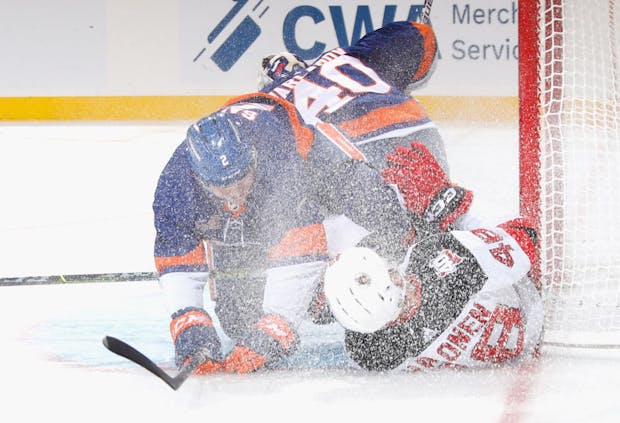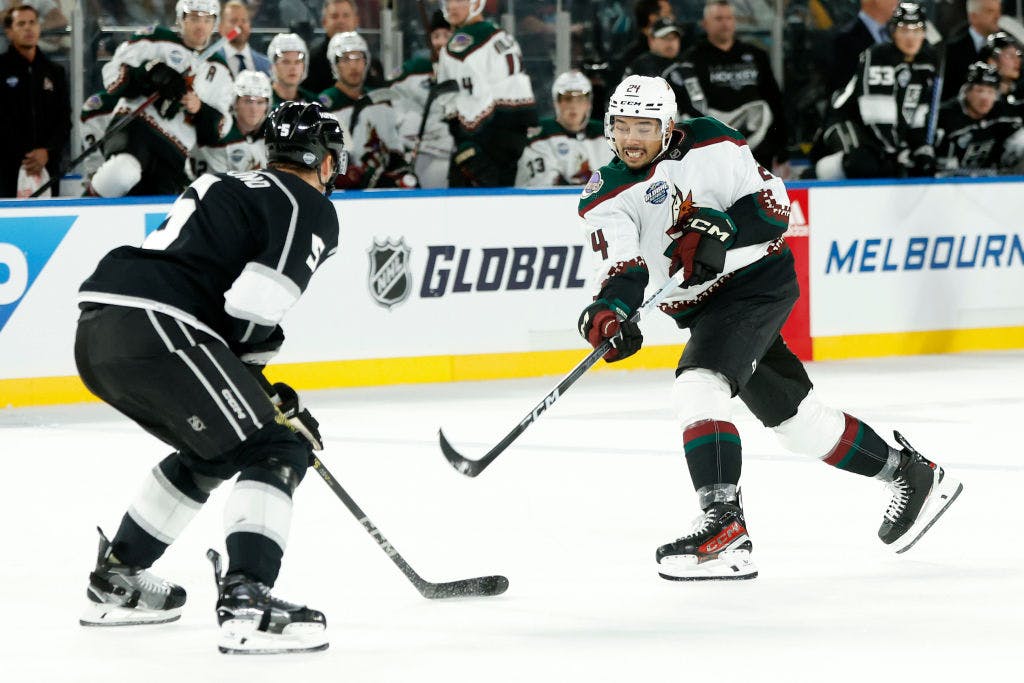
The National Hockey League is giving serious consideration to further changing its matchday scheduling at home to create more game windows for fans in Europe as part of internationalisation plans that are already proving fruitful.
Early puck drops on weekends in North America, putting games into primetime for fans in Europe, is paying dividends, with the key ice hockey markets in the Nordics, Czech Republic, Slovakia and Germany all seeing above average viewership as a result.
Indeed, across those key markets, viewership is up by 370 per cent compared to other live NHL games, according to the league. Sweden is up 827 per cent, Finland has increased 670 per cent, Germany has risen 248 per cent, while Czech Republic and Slovakia have grown 71 per cent and 40 per cent, respectively.
It has put the league’s international department into planning mode.
“We have to look at every year if the way we’re doing it should be the way we’re doing it going forward,” NHL senior executive vice-president of media and international strategy David Proper tells SportBusiness. “While I can’t tell you that next year we’re going to change things, you can assume that we’re very much going to look at it the next couple of weeks and over the summer we’re going to evaluate whether we’re going to add a change or do something different with regard to more engagement of the European markets.”
Proper points to the National Football League, Major League Baseball and the National Basketball Association “getting more aggressive” with international audiences, especially the latter due to the prominence of European players in the NBA.

The NFL recently announced it is doubling its international game allocation from four to eight in 2025, with five international games this season and a first-ever regular-season game in South America when the Philadelphia Eagles play the Green Bay Packers in Brazil.
“We may approach it differently based on our situations, but in terms of strategies, we’re very similar,” Proper says. “We clearly focus on northern and eastern Europe. Australia, China and the UK are places that we all have looked at in some form or another and decided we could or couldn’t do something based on our situation. Those are really the differences, they’re where we go, not how we do things.”
Last month, the NHL announced plans for the 2024 NHL Global Series, which will mark the 11th season that it has travelled to Europe to play regular-season games. To date, 42 have been staged on the continent, of which four games were played in Stockholm, Sweden last year.
All four were sell-outs and complemented by fan activity events on the Kungsträdgården, a park in central Stockholm. Through such watch parties and fan activity events, the league’s European media rights-holders are helping to build the NHL’s profile.
“When we decide we’re going to go to some place, the media partners are important because we want to know that we’re going to get the support, that they want it there,” Proper says. “But it’s also about the market as a whole, so we believe that if the market as a whole is doing well, then media will take care of itself in getting strong deals.”
The NHL’s media rights in its core European market of the Nordics are held by the Viaplay Group. The IMG agency works as a consultant on the NHL global rights sales (excluding North America and the Nordics).
This year’s NHL Global Series will see the Buffalo Sabres and New Jersey Devils begin the 2024-25 regular season by facing off in a pair of games in the Czech capital Prague on October 4 and 5, while the Dallas Stars and Florida Panthers will then meet in Tampere, Finland, on November 1 and 2.
In advance of traveling to Prague, the Sabres will finish their training camp in Munich, Germany, with a friendly against Deutsche Eishockey Liga club Red Bull München in an exhibition match on September 27.
However, Germany, as well as Switzerland, is itching to host regular-season games. Proper concedes the league is “reaching the stage” in the two countries where pre-season games “don’t work anymore”.
The NHL has also had success in Australia, where the Los Angeles Kings took on the Arizona Coyotes (pictured below) in two pre-season games at Rod Laver Arena, site of tennis’ Australian Open, in Melbourne last September. SportBusiness understands that the league is planning future pre-season games in Australia after the success of the first iteration.
“In essence, we brought a rink of ice halfway around the world and put it in a tennis arena and that was no small feat,” Proper notes. “Australia has got to be one of the most singularly attractive markets that’s untapped because it is such a sports crazy and wealthy market but it’s hard. It’s a hard place to do business from halfway around the world.”

In the next few years, games in Germany, Switzerland, Sweden, Finland, Czech Republic, Mexico and the UK are expected. While the league had looked at staging games in Russia and throughout the Middle East in the past, “recent events made it impossible for us to do business there” Proper acknowledges.
Other markets on the NHL’s radar include other Eastern European countries, the Baltics, France and Italy, host of the 2026 Winter Olympics, which will feature NHL players for the first time since 2014. A two-Games deal was agreed in February.
At the same time the NHL, which has not participated in an international tournament since 2016, launched The 4 Nations tournament featuring the US, Canada, Sweden and Finland that will take place in February 2025, acting as an appetiser for the Olympics.
“We think that it’s important to have a consistent international calendar for national teams to play,” Proper says. “It’s something that is very central to the future of our international strategy but I’d be lying if I said it was easy to get to where we got. It’s been a long stretch of us looking at it, pushing it.”